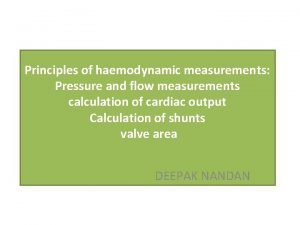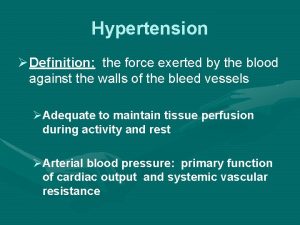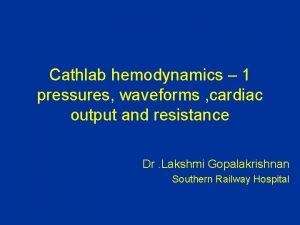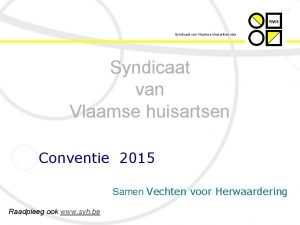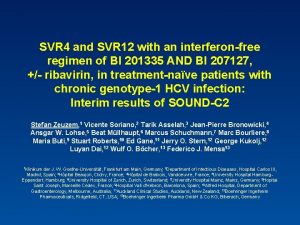Studiedienst van de Vlaamse Regering SVR Research Centre






- Slides: 6

Studiedienst van de Vlaamse Regering -SVR Research Centre of the Flemish Government - SVR Asking the right questions – New approaches WP 14, Submitted by Belgium Peter De Smedt Joint UNECE/OECD/Eurostat Working Group on Statistics for Sustainable Development Second meeting - Oslo, 15 -16 November 2006

ASKING THE RIGHT QUESTIONS Why measuring SD? How can SDI support decision-making? ‘Five questions’ approach Research Centre SVR

Why SDI ? Sustainable development is used widely in society, but the concept has to be translated to make it operational. Societies and their environments change, technologies and cultures change, values and aspirations change, and a sustainable society must allow and sustain such change. So in stead of being defined in objective terms, SD is characterized by process-oriented logics. As a consequence policy makers have to rely on information that allows them to judge on a regular basis whether or not the current evolution is to be considered as a contribution to stay or to get on a sustainable path. As such, SD requires constant measurement and feedback for evaluation. Sustainable development indicators comprehensive information about shaping sustainable development. should the key provide elements Research Centre SVR

How can SDI support decision-making? Decisions in a policy context are more complex then a single choice to be made. Policy problems and solutions are social constructions - they are not simply objective givens but are the result of social processes. Change in policy involves the cognitive and normative beliefs of stakeholders, the resources available to them, and the coalition building for supporting a particular image of the problem and its possible solutions. These key issues should be incorporated in the process of measuring SD. New ongoing approaches are presented in this paper. Key principles are (i. ) the cooperation between different governments/organisations; and (ii. ) the knowledge creation through a process of argumentation. Research Centre SVR

Box 2. The ‘five questions’ approach In analogy with the Swiss monitoring process on sustainable development § A very strong communication function. § It can be used to stimulate a process of argumentation during stakeholder workshops. § It can be used as a template for dissemination on SDI. § There is no evidence that these questions can be used in the selection process of the indicators. Still, the use of these questions within a CPI approach provides some preliminary but interesting thoughts. If during this process extra attention is given to an even distribution of SDI among the five questions, this could probably enhance the balance within the SDI. Research Centre SVR

Feedback for evaluation Research Centre SVR


